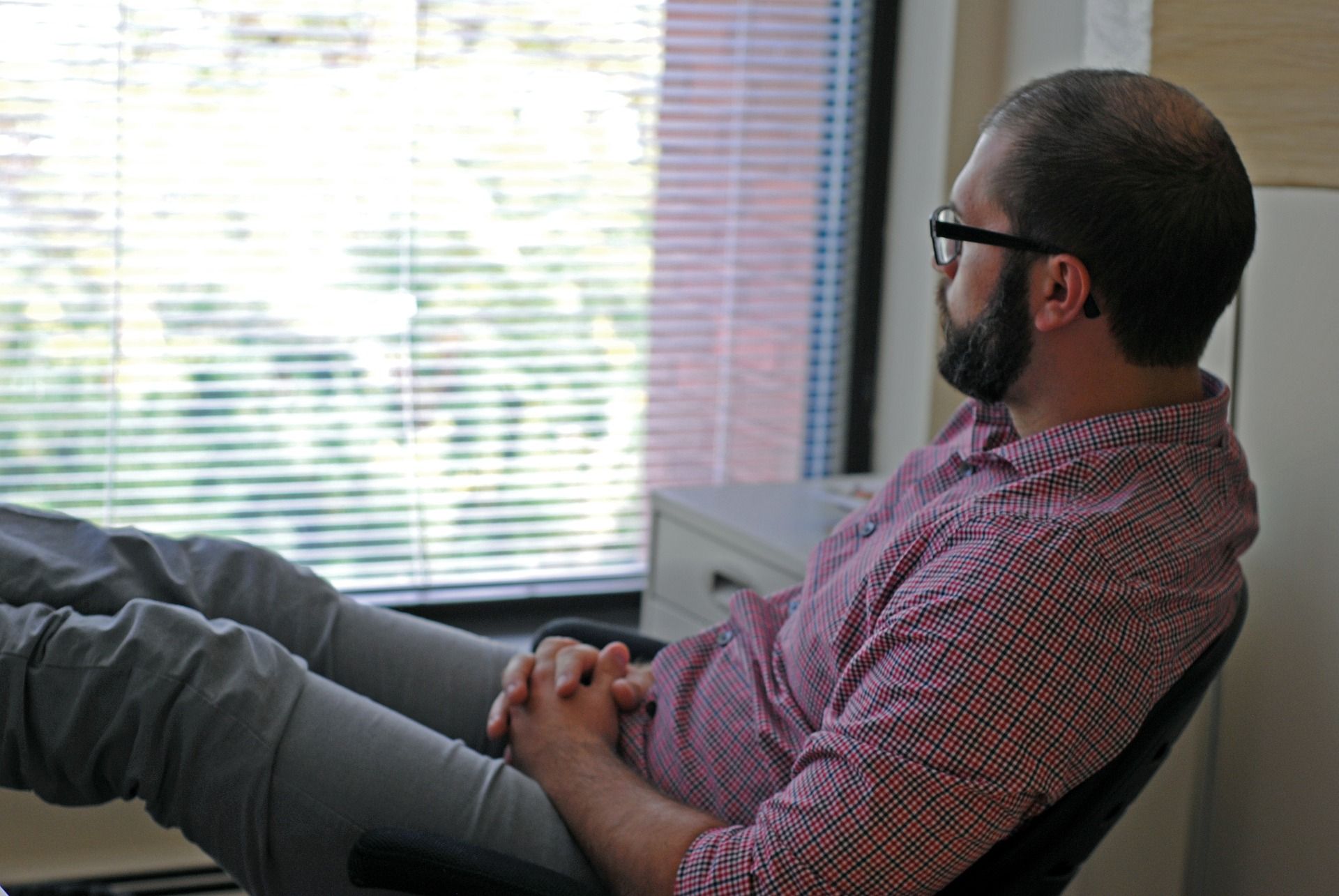127. Do I need therapy? How to Know and Why Summer is the Best Time! with Carrie Bock, LPC-MHSP

In this episode, Carrie explores the signs that indicate you might need therapy and why summer is the prime season to begin your mental health journey
Episode Highlights:
- How to recognize signs indicating you might need therapy.
- The benefits of starting therapy during the summer months.
- Practical tips for evaluating your mental health and well-being.
- The advantages of intensive therapy sessions for busy schedules or ongoing issues.
Episode Summary:
If you’ve been asking yourself, “Do I need therapy?” or if someone has suggested it, this episode will guide you through key indicators that therapy could be beneficial. We’ll discuss how feelings of overwhelm, difficulty managing daily tasks, or strained relationships might signal that it’s time to seek professional help.
Therapy is a powerful tool for managing mental health issues like anxiety and OCD. If you’re experiencing symptoms such as persistent worry, obsessive thoughts, or a general sense of burnout, therapy might be the right step. In this episode, I’ll also share why summer is an ideal time to begin therapy. With a potentially lighter schedule, this season offers a unique opportunity to focus on self-care, build new coping skills, and address underlying issues before they escalate.
If you’re considering therapy but feel uncertain, I encourage you to listen to this episode and take that first step toward healing. Therapy is not a sign of weakness; it’s a proactive choice to invest in your mental and emotional well-being. Whether you’re looking for a few sessions to gain clarity or more intensive work through a therapy retreat, I’m here to support you.
Explore related episodes:
Transcript
Welcome to Hope for Anxiety and OCD episode 127. I am your host, Carrie Bock, a licensed professional counselor in Tennessee. Today, we’re going to talk about, “Do I need therapy? How do I know if I need therapy?” Maybe someone in your life has been telling you, “Hey! You need to go to therapy”. Let’s look at how you might really need to know if therapy could be a good option for you. Also as a bonus, “Why summer really is the best time to go to therapy?”
Number one, maybe you’re not functioning in your day-to-day life as you normally do and as you would like to. Let’s look at different domains of your life. How about home? Are you sleeping? Are you able to complete activities of daily living, as some people call them?
Things like showering, getting out of bed, feeding yourself, going to work, or doing your day-to-day activities if you don’t go to work. You want to look at how you are functioning. Are you able to do some of these things? Is it a lot harder maybe than it used to be? That might be an indication that there might be some kind of mental health situation going on for yourself.
If you’re having to drag yourself out of bed every morning just to get going or to function, you find that you can’t sleep at night because you’re super anxious, just worrying about things all the time, that might be an indicator that you might need to go to therapy. What about work or school? That would be another area we might look at to see how you’re functioning.
If you are going to work, all you can think about is what’s going on at home in your household. You’re going to work, maybe you’re completing tasks, but there’s absolutely no joy. You just feel dry. You wonder,” Why am I even in this job anymore?” We all go through different processes with our various jobs or careers.
It might be super stressful and you’re having a hard time either dealing with the work stress or the home stress. Maybe you find that you are late to work on a repetitive basis because you keep checking all the door locks and you keep checking to make sure the oven is off and the curling iron has been unplugged, that might be an indicator or red flag to you, like, “Hey, this OCD ritual behavior is now starting to impact my work life.”
Maybe you have to do presentations at work and you get super nervous speaking in front of people. Maybe you have different job responsibilities than you used to have. Usually what happens when people come to counseling is something has changed, something has shifted. Maybe your work has been going fine, but you’re scared to fly, and then you find out work wants you to go to one to two conferences a year that are out of state. And you would have to fly because it’s not close enough or feasible enough for you to drive there and back. If your boss is coming to you concerned, like, “Hey, I’ve noticed you’re here, but you’re not really here.” That might be a good indicator that it’s time to get some help. Three, how are you functioning in your relationships? What about people that you live with at home? Whether it’s a roommate, or whether it’s a spouse, whether it’s your kids, do you find yourself frequently getting irritated at those people, or constantly getting into conflict or arguments?
Maybe there’s no conflict, sometimes people just get tired of fighting, and then there’s this underlying tension. Or lack of communication, so it can go either way. Sometimes the climate of the home is just we’re not talking at all, and that’s not healthier than people who are yelling all the time. Those are both in states of unhealth where.
Something needs to be done in order to have more peace at home. So you want to look at your relationships. Do you have friendships? Do you have people that you connect with on a regular basis? I know that we’re all busy, but at the same time, we all need some sense of community and connection. I know a lot of people struggle with anxiety or struggle with getting out there and socializing.
If those are challenges for you or things that are keeping you from engaging in relationships, maybe you want to date, but it absolutely terrifies you. I went to therapy for that many years ago before I met my husband. That was a thing for me because I had been through a divorce and I was hurting and didn’t want to get hurt again. At the same time, I’d done a lot of healing and felt like I was ready to move forward with my life. So if your relationships or inability to engage in a relationship, a future relationship that you would like, are impacting you, I would encourage you to consider therapy as an option. What about your relationship with yourself?
We all have a relationship with ourselves. Some people are super self-critical, they never have any grace for themselves, they never allow themselves to make a mistake, and in those situations, I would say that that’s pretty unhealthy and can keep you from doing things that you want to do in your life, can keep you from taking risks, it can keep you from taking a break and a much-needed rest.
You’re constantly pushing yourself. Usually, we have these two parts inside. One is pushing us towards good things, and one is self-sabotaging that in some way, shape, or form. The Bible calls this your flesh, sin nature, and then your spirit nature. If you’re a Christian, how are you seeing those things in your day-to-day life?
Are you engaging in self-destructive behavior, such as self-harm, addictive behaviors, drinking, or overusing, prescription drugs, those types of situations? How are you in relationship with yourself, with your soul, your spiritual connection to God, all of those pieces are really important. And then lastly, maybe you just need an outside third party or objective point of view on your current life situation. I remember there have been times where people have come to see me for one session just to ask, Is this normal? Usually, people who are asking the question, Is this normal? Typically what they’re experiencing is normal. I won’t say that that’s always the case, but a lot of times it is people who are going through situations such as grief and loss.
Sometimes you can have very conflicting emotions in grief and loss situations in a divorce situation. In a parenting situation, there can be conflicting emotions, and it’s hard to navigate on your own or tease out. Sometimes we feel like we’re supposed to be feeling a certain way. We say, Is this okay? Is this how I’m supposed to be feeling or is this a normal response? A lot of times if we haven’t experienced that before, or we don’t know someone else who’s been through it, or we don’t feel like we can actively share this with other people in our personal life, sometimes it’s helpful to have that listening ear to bounce those ideas off of.
Maybe you just feel like you need some different ways of approaching situations or other people in your life. Maybe you’re trying to learn a particular relationship skill, such as setting boundaries. That’s an important one. We’ve talked about that on the podcast before. We’ve talked about the importance of setting boundaries.
What is a boundary and how do I set one? So go look in our show notes. We’ll link to those episodes. Maybe you are wanting to go to therapy to learn some specific strategies for dealing with OCD. That would be a great opportunity for you to go to therapy. I think a lot of times people have these stigmas.
We have hopefully broken a lot of those down in our society, but they still exist in some circles. Like, if you go to therapy, that means something, like, seriously is wrong with you. That’s not the case. Sometimes you may only need to go for a few sessions. You may just need to get some objectivity.
I’ve had people come in that have told me that they’ve had those types of experiences. I’ve certainly had those types of experiences with clients where, They just kind of needed a little boost in the right direction or some problem-solving, and then they were able to go on their way. Maybe you do feel like you need a lot more, and that’s okay too.
Wherever you’re at, there’s no fear or shame surrounding getting help for yourself. Why is summer the best time to get therapy? This is a secret from the inside world of therapists. Summer is often a slower time for therapists. The reason is that people are genuinely feeling happier. The sun is shining outside, the kids are out of school, and there’s less stress in the home because we’re not having to maybe run them around to as many activities.
I don’t know. That depends on the family and the age of your children. You could be just as busy during the summer as a school year, but you may not be scrambling to find the red shirt to wear on red shirt day. But people are usually going on vacations during the summer. You may think, I’m feeling pretty good this summer.
Why do I need to go to therapy? If we’ve been through some of the other things and you know that you have stuff to work on, you know that you want to build in skills, you know that you want to be able to learn certain things, when you’re not stressed, that’s the best time to learn new skills. What I have seen happen over and over and over again is people will know that they have trauma to work through. Things from their past that they know are affecting their relationships in their day-to-day life. A lot of times, what they’ll do is they’ll wait until they hit a crisis point to get counseling. Hey, there’s no wrong time to come to counseling. If you’re in a crisis, absolutely come to counseling and get what you need, but if you know that there are some bumps in the road and you probably want to get help before it gets worse, that’s a great time to initiate therapy. Do not wait until things get super bad to feel like you have to then come in at that point. The summer is an awesome time to build in learning experiences.
You will probably get on the therapist’s schedule faster or a little bit easier. Keep that in mind. We really get super busy when people are like back in the swing of school around September, or October, things can be really slammed or in between holidays, sometimes holidays are busy, sometimes they’re slow, it just depends.
A lot of people will tell you, yeah, during the summer, therapists may look different. They may take more time off. I don’t know, but it may be the best time for you to come to therapy. And if you’ve ever thought, I don’t really feel like I have the time for therapy to go once a week to unpack stuff and then pack it back up, especially for clients who have experienced a lot of chronic childhood trauma, those are some of the clients that I find I work the best with.
What we have found works amazing is for them to come for an intensive day, for them to come for a therapeutic multi-day retreat so that they have the time and space to unpack some of those things in the past without having to go to therapy Unpack the past, pack it back up, and keep doing that over and over on a weekly basis.
Meanwhile, while crises are going on, oh, this situation happened with this family member, and now I need to take time away from trauma processing to process that, or this other situation happened, and now we’re focused on that instead of focusing on the past situations that are contributing to present responses.
If you have ever thought about maybe I just need to take some time for myself, maybe you’re a busy professional, you work a lot of hours, maybe you just say, I need to block off a day or a few days for some self-care, get a kind of a therapeutic retreat situation happening for me. Please contact me either through the podcast or through my counseling website, bythewellcounseling.com. I would love to explore that option with you a little bit more. Until next time. I hope you found this episode helpful, and I will see you again next week.
Hope for Anxiety and OCD is a production of By the Well Counseling. Our show is hosted by me, Carrie Bock, a licensed professional counselor in Tennessee.
Opinions given by our guests are their own and do not necessarily reflect the views of myself or By the Well Counseling. Our original music is by Brandon Mangrum. Until next time, may you be comforted by God’s great love for you. you

